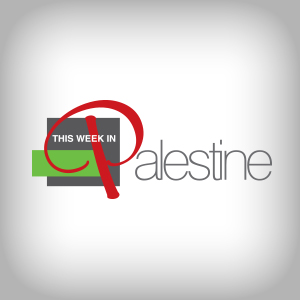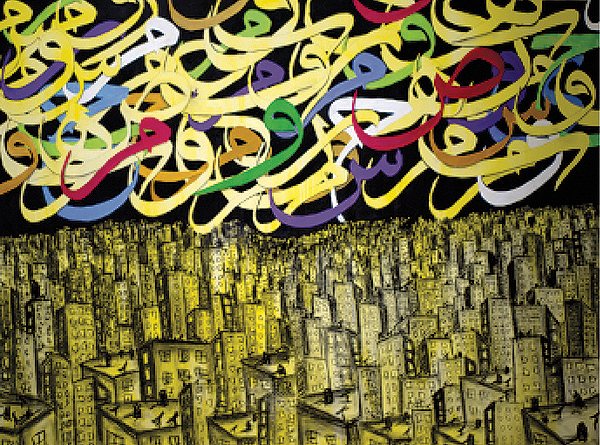This issue features only a sampling of contemporary, living poets simply because the limitations of space do not allow for a more thorough treatment of this broad subject. We would like to pay a modest tribute to the rich poetic heritage of the recent past by mentioning a few other poets (living and deceased) who, unfortunately and for no good reason at all, have not found their way into this issue.
Khalil Al-Sakakini (1878–1953) was a poet, scholar, pioneering educator, and nationalist with strong ethical convictions that led him to be excommunicated from the Greek Orthodox Church and incarcerated by the Ottomans for sheltering a Jewish fellow citizen. Mourning the death of his wife, he spent the last years of his life eulogizing her.
Is’af Nashashibi (1885–1948) was a poet and educator who fought against the colonial oppression of Palestine and other countries. He was a member of the Arab Academy of Damascus, the oldest academy regulating Arabic language, established in 1918 with explicit reference to the example of the Académie française.
May Ziyade (1886–1941), a poet and prolific writer, was known as a pioneer in Oriental feminism. She was a key figure in the Nahda, the cultural renaissance of her time, and maintained a lively correspondence-based relationship with the writer Kahlil Gibran.
Ibrahim Touqan (1905–1941) has been hailed as the Father of Palestinian Poetry. He railed eloquently against the British Mandate occupation. His poem Mawtini (My Homeland) is the national anthem today.
Abdel Karim Al-Karmi (1906–1980) also known as Abu Salma, fled from Haifa in 1948, eventually reached Damascus, and always kept the key to his home. He was given the title “The Olive of Palestine” and was awarded The Lotus International Reward for Literature in 1978.
Abdel Rahim Mahmoud (1913–1947) was a student of Ibrahim Touqan and became his fellow professor of literature at An-Najah University in Nablus. He was killed in a battle with Zionist gangs.
Mahmoud Salim Al-Hout (1913–1966) was a poet and professor of Arabic literature at the American University of Beirut and Texas University.
Fadwa Touqan (1917–2003), sister of Ibrahim and revered as the Grande Dame of Palestinian Letters, published six volumes of poetry that have been translated into many languages and received numerous awards. Her early works focused on feminist themes, but after the 1967 War she forcefully chronicled her people’s suffering under and resistance to the occupation.
Jabra Ibrahim Jabra (1920–1994) was a versatile writer of poetry, novels, and literary criticism. His preferred style of poetry was the newly emerging prose poetry. His translations into Arabic of important works of Western literature include plays by William Shakespeare.
Kamal Nasser (1925–1973) was a political leader, writer, and poet. His “The Last Poem” ends with the lines: “Tell him one day that I shall return – to pick the fruits.” He was expelled from the West Bank in 1967 and assassinated by Israeli forces in Lebanon.
Salma Khadra Jayyousi (born 1926) is a poet, writer, translator, and anthologist. She is the founder and director of the Project of Translation from Arabic (PROTA) and author of an extensive anthology of Arabic literature published by Oxford University Press in 1992. She has taught Arabic literature at universities throughout the Middle East, Northern Africa, and the United States.
Muin Bseiso (1926–1984) was awarded the Lotus Prize for African and Asian Literature and the Palestinian Dir al-Thawra (Revolution Shield). He died in exile, expelled from Gaza after the 1967 war.
Khalil Zaqtan (1928–1980), father of Ghassan, was one of the founders of the Union of Palestinian Writers and Journalists. Protesting the sale of land to Zionist colonialists in his early years, he later wrote epic poems to protest the Vietnam and Algerian wars.
Tawfiq Zayyad (Ziad) (1929–1994) was a poet, writer, scholar, and politician. Some of his poems of heroism and resistance were set to music. At the United Nations he was instrumental in making known the terrible conditions of political prisoners. Repeatedly targeted for assassination, he died in a massive car crash.
Taha Muhammad Ali (1931–2011) was a poet and short-story writer. Self-taught through reading, he started writing poems in the 1970s. His style has been described as “direct, sometimes humorous, and often devastating” (non-metrical and un-rhymed, blending colloquial with high Arabic).
Samih al-Qassim (1939–2014), also called the poet of resistance, was a prolific writer of nationalist poems, many of them rather short.
Mahmoud Darwish (1941–2008) used Palestine as a metaphor for the loss of Eden. He won numerous awards and has been hailed as the Prince of Poets. His funeral in Ramallah was attended by thousands of mourners.
Mourid Barghouti (born 1944), father of Tamim, was granted the Palestine Award for Poetry in the year 2000. His poems are highly praised and widely published in international literary magazines, both in Arabic and in English translation.
Ahmad Dahbour (born 1946), largely self-taught through avid reading, has published a number of poetry collections and received the Palestine Award for Poetry in 1998. He lives in Gaza, where he serves as director general of the Ministry of Culture.
Hussein Jamil Barghouti (1954–2002) wrote poetry, screenplays, and lyrics, and held various posts in Palestinian educational and cultural institutions. He was one of the founders of the Palestinian House of Poetry in Ramallah.
Al-Mutawakkil Taha (born 1958), whose works have been published widely and translated into many languages, was co-founder of the House of Poetry in Ramallah. He served as head of the Union of Palestinian Writers and Journalists and has held various culture-related government posts.
Muhib Barghouti (born 1964) is a poet and cultural journalist. He has published a number of poetry collections in Arabic, the latest called Mukhtabar Al-Mauwt (The Laboratory of Death).
Susan Abulhawa (born 1970) is a poet, writer, and social activist. An outspoken critic of Israel’s policies, she founded the NGO Playgrounds for Palestine. Her collection of poetry titled My Voice Sought the Wind followed the novel Mornings in Jenin that has been translated into more than 20 languages.
Fady Joudah (born 1971), the son of refugees, is a poet, translator, and physician whose translations of Mahmoud Darwish and Ghassan Zaqtan’s poetry have won international prices. His collection Textu contains poems that are exactly 160 characters long, written on a cellphone.
Suheir Hammad (born 1973), the daughter of refugees, is a poet, author, performer, and political activist. Heavily influenced by Brooklyn’s vibrant hip-hop scene, she has written award-winning poetry and performs spoken-word poetry on war, peace, women, and power.
Tamim Al-Barghouti (born 1977) is a poet, columnist, and political scientist with a PhD from Boston University. Growing up writing poetry, he earned the title Poet of Jerusalem after the enormous success of his poem “In Jerusalem.”
Najwan Darwish (born 1978), a poet, journalist, editor, and cultural critic, has been hailed as one of one of Arabic literature’s brightest new stars. Among many posts, he serves as the literary adviser to the Palestine Festival of Literature.
Raed Al Wahsh (born 1981), son of Palestinian Bedouin refugees from the Galilee, grew up in a refugee camp near Damascus. He has published four volumes of poetry, and his recent work chronicles social regression in war-torn Syria.



